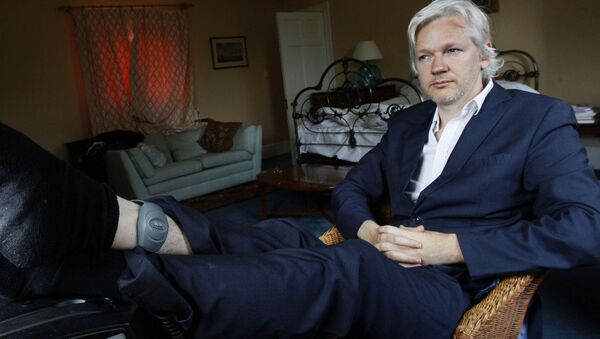Assange's lawsuit, filed in late October, alleged that the Ecuadorian government was violating his rights as an Ecuadorian citizen (which he has been since December) by forcing Assange to comply with rules such as not commenting publicly on politics and onerous regulations about allowing visitors to see him.
If he didn't follow those rules, Assange would be liable to be expelled from the Ecuadorian Embassy in London, where he has lived for years fearing prosecution by a federal grand jury in the United States for publishing secret diplomatic and military cables when he was still in charge of WikiLeaks.
Assange testified in court about his situation through Skype, according to images posted on social media.
Última hora! Papá Noel demamda al Ecuador #Assange pic.twitter.com/MuSN2Frcw5
— Felistopheles MD. 🤘 (@Felo_777) October 29, 2018
After the Ecuadorian judge dismissed Assange's suit, the Australian-born publisher said that the embassy's newest rules were a signal Ecuador wanted to kick him out, TeleSur reports. Assange claimed further that Ecuadorian President Lenin Moreno had already made the decision to terminate support for Assange.
An unnamed Ecuadorian official tells Reuters, however, that Quito will maintain Assange's asylum for as long as he wishes, but he must comply with Ecuadorian rules. Assange's attorneys are reportedly prepared to appeal the judge's Monday decision.



